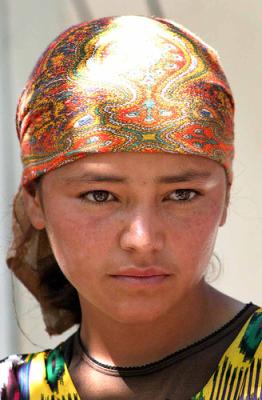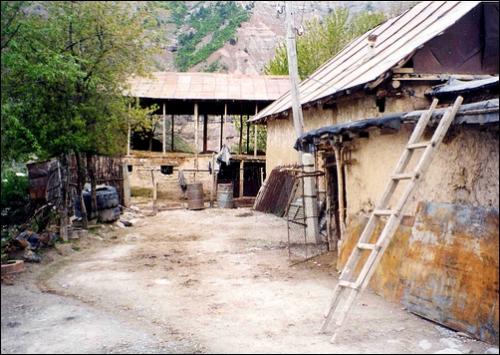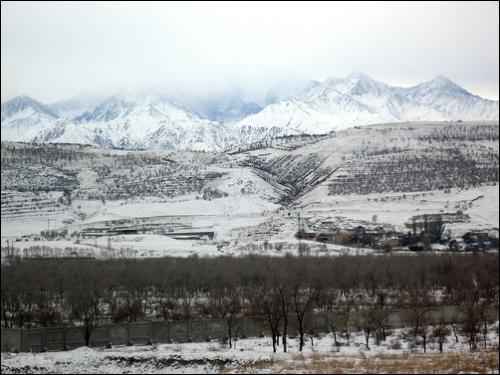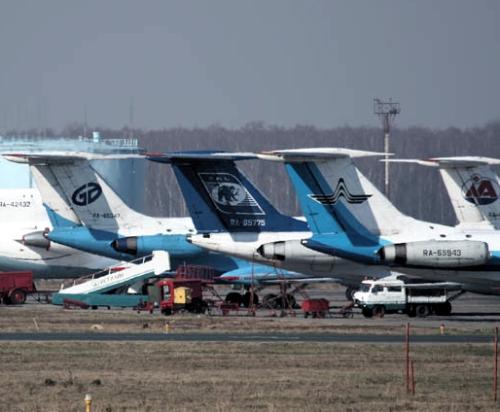tajikistan
 photo by babasteve
photo by babasteve nein, es sind nicht jene frauen aus robert altman´s gleichnamigen film.
d. und ich treffen sie in einem ungeheizten raum, bei aussentemparaturen von minus 15 grad celsius. wir alle frieren: wir, die sogenannten expert/inn/en können uns abends in unseren (schlecht aber recht) geheizten hotelzimmern aufwärmen. in ihren wohnungen gibt es nur selten strom, in diesen abnorm kalten tagen, die das land seit anfang jänner heimsuchen.
sie haben ihre namen genannt, die so fremd waren, dass sauseschritt sie inzwischen wieder vergessen hat. so sassen sie vor uns, frierend, in ihre wintermäntel eingehüllt, den samstag opfernd, nachdem ein geplantes treffen mit ihnen am vortag nicht möglich war: die sprecherin, die genau über die ihnen vorenthaltenen rechte informiert war; die organisatorin, die sogar zu flirten bereit war und die im hintergrund wirkende, scheue, der sache dienende.
jene drei frauen haben vor wenigen monaten einen elternverband gegründet, der die rechte von eltern mit behinderten kindern vertritt. ihre kinder sind selbst schwer behindert in einem land, wo behinderung mit einem starken stigma behaftet ist, wo kinder zuhause versteckt werden, weil die regierung nicht imstande und nicht willens ist, entsprechende massnahmen zu ihrer unterstützung zu setzen. sie kämpfen für das recht ihrer kinder auf bildung, soziale unterstützung und staatliche anerkennung - und auf das recht, sich mit ihnen in der öffentlichkeit zeigen zu dürfen. sie kämpfen für rund 60.000 behinderte kinder in diesem land, für die rechte der familien, behinderte kinder haben zu dürfen.
vor uns also jene kämpferinnen, genau bescheid wissend um alle rechte, die dieser operettenstaat ihnen vorzuenthalten nur zu gerne bereit ist. sie sind aber keine verbissenen aktivistinnen, wie wir sie aus anderen kontexten kennen. diese drei frauen strahlen, sitzen aufrecht, sind stolz und selbstbewusst. sie haben es geschafft, stolz ihr leid nach aussen zu tragen und für ihre rechte einzustehen. sie stehen nun in der öffentlichkeit, mit bescheidenen gehältern, die weniger zu ihrem lebensunterhalt als vielmehr zu ihrem selbstwertgefühl beitragen.
dennoch: es ist eine sehr sensible situation. wir wissen, dass nur wenige worte genügen, um unser treffen mit dem erfahrenen leid, der empörung und dem mitleid zu überschwemmen, das wir alle, aber insbesondere sie in sich tragen. wir schaffen den balanceakt, produktiv an der analyse von vergangenheit, gegenwart und zukunft zu arbeiten. oft sind unsere augen unter tränen, doch wir schaffen den rationalen dialog.
sauseschritt denkt, dass er diese frauen niemals vergessen wird.

photo by brian harrington spier
(...) It is becoming almost routine for Amina to let her children stay off school. It is around minus 20 on a January morning, and her elder son Intizor has been off sick with a cold for the last week. Today she has decided to keep Intizor’s younger brother Sino and sister Sitora at home as well.“They go from a cold apartment to a cold school, so they get ill. It’s better if they stay at home wrapped in warm blankets,” said Amina, who has five children in all and lives in a multi-storey apartment block in Dushanbe, the capital of Tajikistan.
Dushanbe, like the rest of the country, has been hit by massive power cuts caused by a combination of exceptionally cold weather, a dip in the electricity supply to the grid, and a legacy of underinvestment in the power industry.
In the capital, the electricity at least still comes on for a few hours a day, but Amina has no way of keeping the flat warm, and nothing to cook on (..)
writes iwpr. after one week of facing what they reported as beeing the worst winter ever, we europeans are happy to have escaped. back in paris now. but what should the locals do? and why is this government not able to provide any useful services to its people?

manchmal hat sauseschritt genug vom sausen und hätte lieber den schritt am überschaubaren ort, zwei katzen und das tägliche sportprogramm in den praterauen (=wien!!!). dazu den samstags - kaffeehausbesuch, den sonntagsspaziergang und die wochentagsbeschaulichkeit. etwas schreiben, menschen nachhause einladen, freunde besuchen. stattdessen postet er bei william gibson über jetlag und besucht asiatische friseure. na dann, auf zum geldverdienen!
(...) Communal services in Moscow thrive on the use of cheap labor of illegal immigrants colloquially known as Gastarbeiters. According to calculations offered in Izvestia, street sweepers from Tajikistan alone "earn" upper echelons of Moscow communal services nearly 300 million rubles every month. Throughout all of Moscow, employment of immigrants earns communal services 78 billion rubles annually (...)
well, sauseschritt thought he should thank k. for the nice evening. and he also thought he should pay back: with some music from the asiatic caravan, a fusion of iranian, chinese, indian, arabic ond many other traditions. javid knows how to work it out. hope she likes it. thanks again, k.!
Asiatic Caravan
[...] While a new framework agreement on labour migration agreed by former Soviet states is a positive step, experts say Tajikistan and Russia must do more to protect the rights of vulnerable expatriates working in Russia.
The declaration, which commits members of the Commonwealth of Independent States, CIS, to coordinate policy to protect migrant workers travelling between them, was issued by the presidents of the grouping’s 11 states when they met in the Tajik capital Dushanbe on October 5.[...]
according to the ferghana news agency a paper "on coordinated immigration policy" has been issued, which also intends to work on a reliable database on immigration in the commowealth of independant states. russia and kazakhstan are main recipients of immigration flows.
also the kommersant reports on migration in cis and has a related picture gallery online:
[...] The trend for the registered growth in migration that emerged in 2004 has deepened this year. According to Demoskop Weekly Bulletin, the indicator stepped up 1.8 fold from January to July of 2007 vs. a year earlier; 165,700 arrived in Russia for permanent residence, while only 26,200 left the country [...]
a few days later, Moscow mayor Luzhkov is really worried about the people, who build HIS city but do disturb so much:
[...] Luzhkov suggested that some of the major hassles of life in Moscow, including congested roads and overcrowded metros, were caused partly by population growth fueled by the influx of immigrant workers. He also suggested that better regulation of arriving workers would in turn lead to better conditions for such workers [...]
We travelled a route, each knowledgable foreigner tries to avoid: the one via Moscow Domodedovo Airport. An old, shabby and dreadfully smelling Tupolev air plane, its equipment and security violating the IATA regulations to the extreme. Broken seat belts, seats which cannot be put to an upright position, overhead compartments, which regularely open, when the air plane is landing.

Free seating: the fight for the seats starts already at the custom control, continues while we are boarding the bus and ends while entering the air plane at the gangway. While the atmosphere is brutal and very tense, the crowd softens quickly, when women with children wish to enter. They are definitely first. Finally we made it into the plane, squeezed tightly between young, mostly male Tajiks, leaving for work in Moscow. They do so with no proper working contract and insurance, but are happy to escape poverty and unemployment in Tajikistan.
Its definitely a men´s world we are in. I have the certain feeling that this is a transport of young soldiers heading for the fight. Tiredness, excitement, curiosity. Ready to fight it, still. Though, its another kind of war: the one on work and regular income in a world of unbalanced globalisation.
No visa needed to enter Russia. Nevertheless it takes a long, long time until these men can pass the Russian customs control. Most of them are almost illiterate (and not talking proper Russian) and they need any help the can find to fill in the registration forms. In the transit area a elderly lady in uniform bosses them around, with a sharp and violent voice.
The authors of a recent OECD study on migration in Europe (Gaining from Migration. Towards a new mobility system. OECD, 2007) recommend governments not to talk about immigration systems anymore. They should be conceptualised as an emerging system of international labour mobility (p. 12). And it states, that the relative importance of European immigration from Ukraine, China, the Russian Federation and countries in Latin America (p.27) is increasing.
Looking at these young and desperate work soldiers I hesitate to accept the euphemism of the wording labour mobility, especially if it comes to low-skilled workers. I wish the authors would have travelled with us: on this trip from Dushanbe to Moscow. And experienced for only four hours flight what it can mean to be part of this kind of mobility.
[more on migration in cis]


